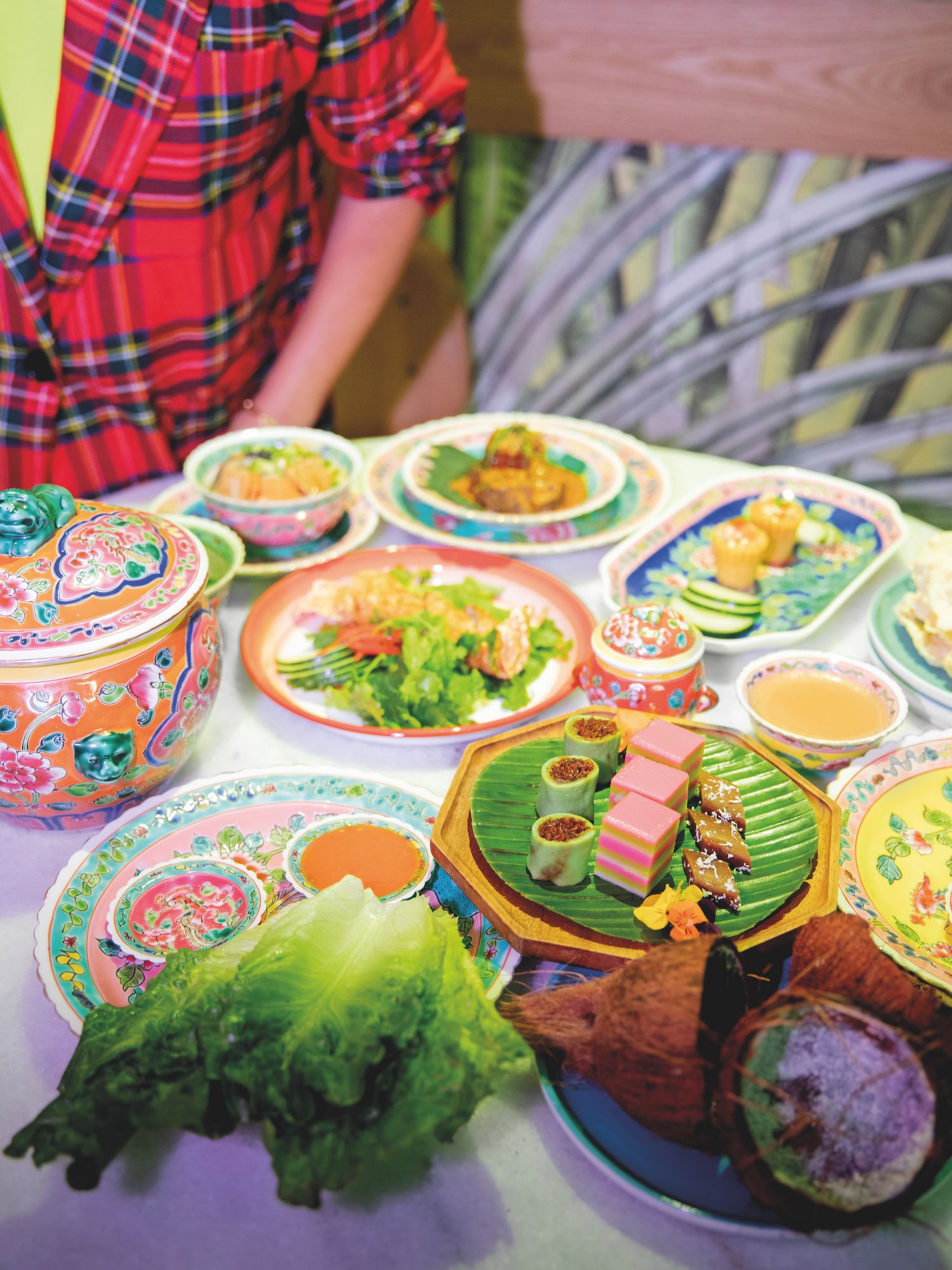Quirky make-up artist and stylist duo turned chefs Tinoq Russell Goh and Dylan Chan, aka Tinoq and Dylan, introduce their new restaurant Bibi & Baba, now open in Wan Chai
What does your Instagram handle mean?
Goh: @PasirPanjangBoy refers to the road I grew up on, on the west coast of Singapore. I was born and raised in a village in Pasir Panjang. In Malay, the phrase pasir panjang means a long street made of sand. I learnt how to cook from my parents, aunties and my multicultural neighbours over there, and the place carries a lot of fond memories.
How did you both transition from hair and make-up artistry to cooking?
Goh: Food and farming were my first loves even before I started in the make-up and styling business. When I was a child, I saw how food connected people and lifted their spirits. I told myself that when I grow up, I’m going to do what my neighbours are doing and feed people humble, satisfying food.
Chan: We try our best to balance both our jobs. Make-up, hairstyling and cooking may seem like very different tasks, but they have one thing in common: balance—balancing the colour, balancing the style, balancing the flavours.
Tell us about your private dinners at home in Singapore.
Chan: It started small and very secretly. We cooked for friends and they enjoyed our food and word spread like wildfire. The media found out about our secret dinners and from there it went boom. I learnt about Peranakan cooking from Tinoq. I like the honest, real, comforting flavours of it, and really enjoy cooking the food.
Goh: We serve beautifully curated meals, each personalised to our clientele. The dinners are always intimate and we bring raw ingredients to them before we cook so that they can smell the freshness of them and feel excited about the coming dish.

Who are some of your biggest celebrity clients?
Goh: We’ve cooked for everyone, from construction workers to celebrities and politicians, but we love cooking for other chefs the most. We’ve even had chefs from Michelin-starred restaurants. My place is like a secret hideout for them.
What is the inspiration behind your cooking?
Goh: Travel, the pushcart hawkers from my childhood, the neighbours in my village where I grew up, my parents and my godmother Shirley Tay, a true Peranakan celebrity chef who has been our pillar through this journey.
How did your partnership with Yenn Wong and the JIA Group come about?
Goh: We met Yenn many years ago at a friend’s Christmas lunch. The way she made sure everyone was taken care of impressed me. Fast-forward to three years ago and a mutual friend of ours brought Yenn and [husband] Alan Lo over for a private dinner. We had so much fun. I like their style, their honesty, their energy and their taste. We were very happy when Yenn invited us to work together on Bibi & Baba.
